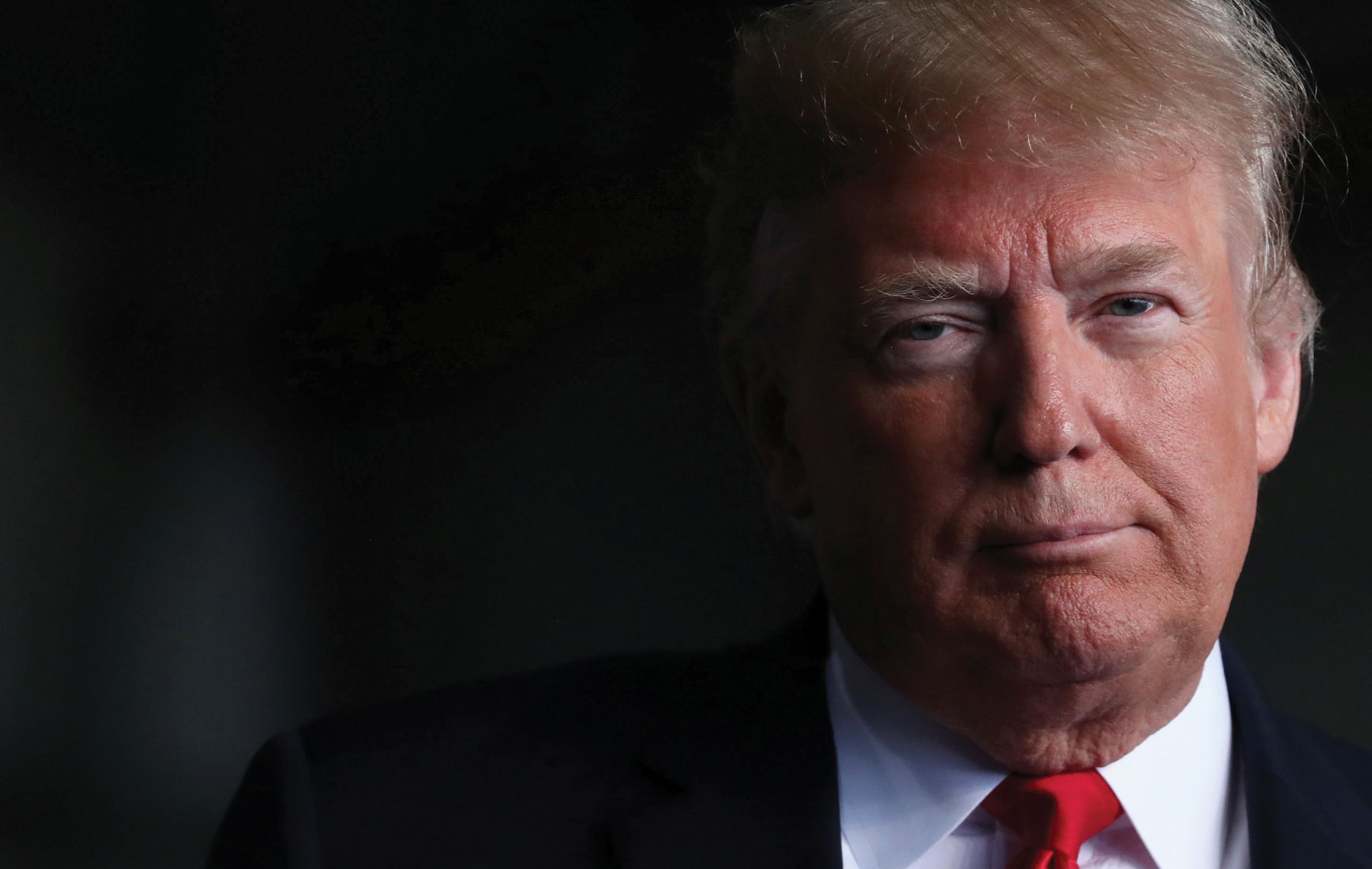
“Some American Jews look at Israel with horror. Israel — and Israelis — don’t seem to understand a simple truth: President Donald Trump is “sowing hatred and divisiveness in this country that will allow the kind of people who supported Hitler to also take action,” as one such Jew, Henry Siegman, president emeritus of the U.S./Middle East Project, told Naftali Bennett, Israel’s Minister of Diaspora Affairs.
Some Israeli Jews look at American Jews with horror. American Jews don’t seem to understand a simple truth: Donald Trump is “a true friend of the State of Israel and to the Jewish people,” as Bennett said. Israel, said Ambassador Ron Dermer, is “not aware of a single non-Israeli leader” other than Trump “that has made such a strong statement in condemning anti-Semitism.”
Jews in the United States have had political differences with Jews in Israel concerning many issues for a long time. In the past two years, Jews in both nations added Trump to the long list of disagreements; Israeli Jews appreciate his support, American Jews reject his manners and policies. But the massacre of Jews in Pittsburgh made these differences more acute, and the conversation about them more bitter. American Jews feel that Israel is willing to throw them under the bus of anti-Semitism in exchange for the temporary political support of a bigoted president. Israeli Jews feel that American Jews are utilizing a tragedy for political purposes and thus alienating Israel’s strongest supporters in the United States.
“You don’t understand” is the phrase Americans use. A few days ago, a respected scholar sent me an email. “Anyone who tries to separate the tragedy and its wake of bitter grief from ‘politics’ does not experience on a daily level the corrosive tragedy eroding America today,” she wrote. Indeed — most Israelis don’t experience such “corrosive tragedy.”
“You don’t understand” is a phrase Israelis also use, when American Jews attempt to lecture them on this or that. You don’t have to spend nights in shelters around Gaza; you won’t pay the price if a peace process blows up; you are too naïve and too distant to appreciate the dangers of a Middle East. You don’t understand.
The inability of Jews to understand the circumstances of other Jews is a given. When a Jew lives among gentiles, there are certain antennas he or she must develop to survive. When someone says, “George Soros, the Jewish billionaire,” these antennas interpret it as a signal, one to which Israelis are tone deaf (What’s the problem? Isn’t he Jewish? Isn’t he a billionaire? Isn’t he justifiably disliked?).
“In the past two years, Jews in both nations added President Donald Trump to the long list of disagreements.”
The same is true for signals that Israeli antennas detect, and many Americans don’t. Consider former President Barack Obama. American Jews saw a president whose views reflect their own values and priorities. Israel’s antennas screamed that something was missing, that something wasn’t right.
Israelis and Americans often make a similar mistake. They believe that the other side — their Jewish kin — doesn’t much care about them.
In recent days, many Jews in the U.S. (and some in Israel) blamed the Israeli government of grave sins of indifference. Israeli Jews aren’t immune to jump to similar conclusions when talking about American Jews. There is some truth to both arguments. Israel, naturally, is more focused on keeping Israel safe and thus less sensitive to anti-Semitic undertones of supportive political leaders. American Jews, naturally, are more sensitive to their own problems, and want Israel to forgo its realpolitik calculations whenever a Jew feels in danger.
Still, there’s a better explanation for the differing interpretations of the situation — better than assuming neglect or apathy. Israelis are tone deaf to the sensitivities of American Jews, and thus cannot comprehend their position. American Jews are tone deaf to the sensitivities of Israeli Jews, and thus cannot comprehend Israel’s policies. There is no remedy for this situation, other than having faith. Israelis must believe that the American Jews — annoying complaints and useless advice aside — want Israel to thrive and survive. American Jews must believe that the Israeli Jews — annoying ignorance and insulting disregard aside — want the American Jewish community to thrive and survive.
The tragedy of Pittsburgh could be a moment that separates Jews from one another. But it is not too late to hope that it can be a moment that instills in us the missing faith.
Read More from Rosner’s Domain: Oy, Wow, and Other Comments on the Midterms, the Jews and Israel






















 More news and opinions than at a Shabbat dinner, right in your inbox.
More news and opinions than at a Shabbat dinner, right in your inbox.